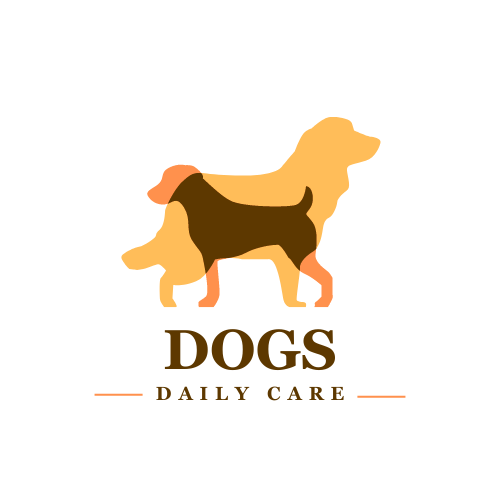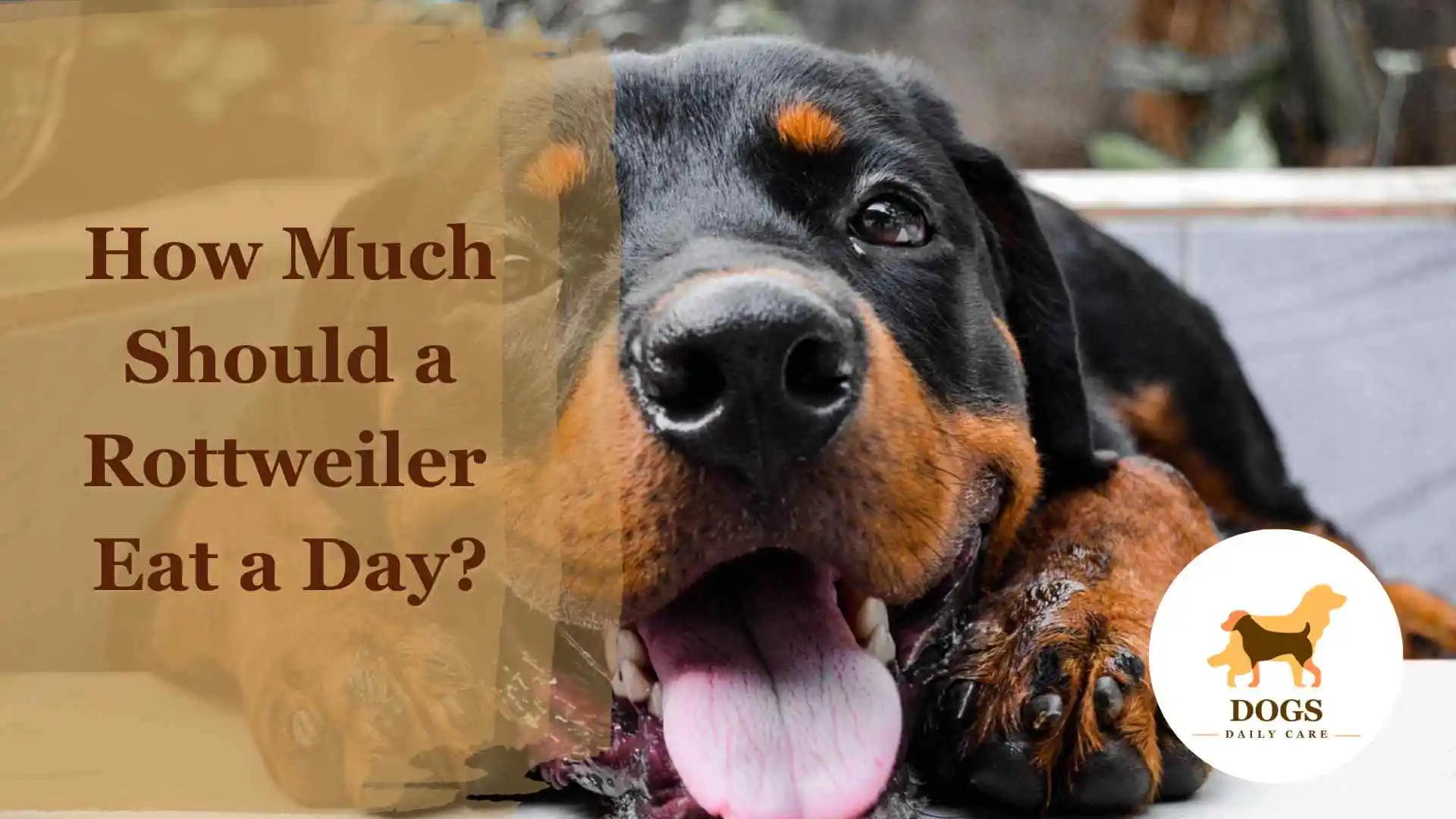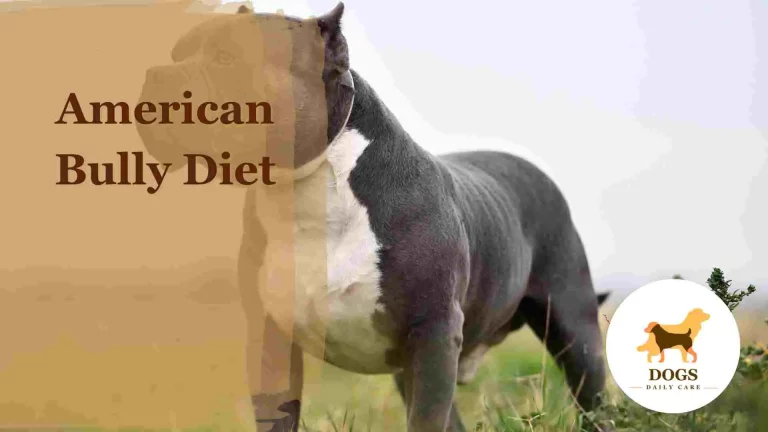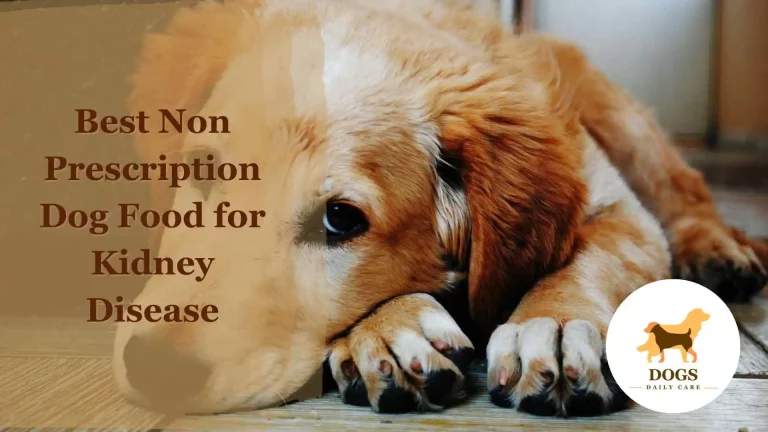How Much Should a Rottweiler Eat a Day? – An Ultimate Guide
Welcome to the ultimate guide on figuring out the optimal amount of food for one of the most popular and robust breeds: the Rottweiler. If you’re a Rottweiler parent, you already know how much these furballs love to eat. But it’s crucial to provide the right nutrition for their active and demanding lifestyle, ensuring they stay happy, healthy, and fit.
Understanding how much to feed your Rottweiler can be a challenging task. Factors like age, activity level, and individual health conditions can greatly affect your dog’s dietary needs. That’s why we’ve put together this comprehensive guide—to shed light on the most important aspects of a Rottweiler’s diet and help you make well-informed decisions.
So, whether you’re a seasoned Rottweiler owner or someone considering adopting this magnificent breed, read on to find answers to one of the most commonly asked questions: “How much should a Rottweiler eat in a day?” We’ll delve into portion sizes, suitable foods, and other dietary considerations that are key to your Rottweiler’s well-being.
Factors Influencing a Rottweiler’s Diet
You might think feeding your Rottweiler is as simple as filling up their bowl and letting them chow down, but there’s more to it than meets the eye. To zero in on the precise amount of food your Rottweiler should eat each day, you need to consider a range of factors that can influence their dietary needs.
Age
A Rottweiler’s age plays a critical role in determining how much they should eat. Puppies, with their boundless energy, may require more frequent meals, while adults may have a more consistent and lower-calorie diet. The nutrient ratio also changes as your Rottweiler ages, which we’ll discuss in detail later on.
Activity Level
Does your Rottweiler love to run around the yard, or are they more of a couch potato? An active Rottweiler will require more calories to fuel their adventurous lifestyle, while a less active dog might need fewer calories to prevent weight gain.
Health Conditions
If your Rottweiler has specific health issues like obesity, digestive problems, or allergies, their diet needs to be adjusted accordingly. In such cases, it’s always best to consult a veterinarian for personalized advice.
Pregnancy or Lactation
Female Rottweilers who are pregnant or lactating have unique nutritional requirements. A vet can guide you through the best feeding practices during these life stages to ensure both mom and pups are healthy.
By taking these factors into account, you can tailor your Rottweiler’s diet to meet their specific needs, helping them lead a happier and healthier life.
Puppy vs. Adult Rottweiler: Dietary Needs
When it comes to feeding your Rottweiler, age is more than just a number—it’s a significant determinant of what and how much they should eat. Knowing the differences between a puppy’s and an adult Rottweiler’s dietary needs is crucial for their well-being.
How Much Should a Rottweiler Puppy Eat a Day?
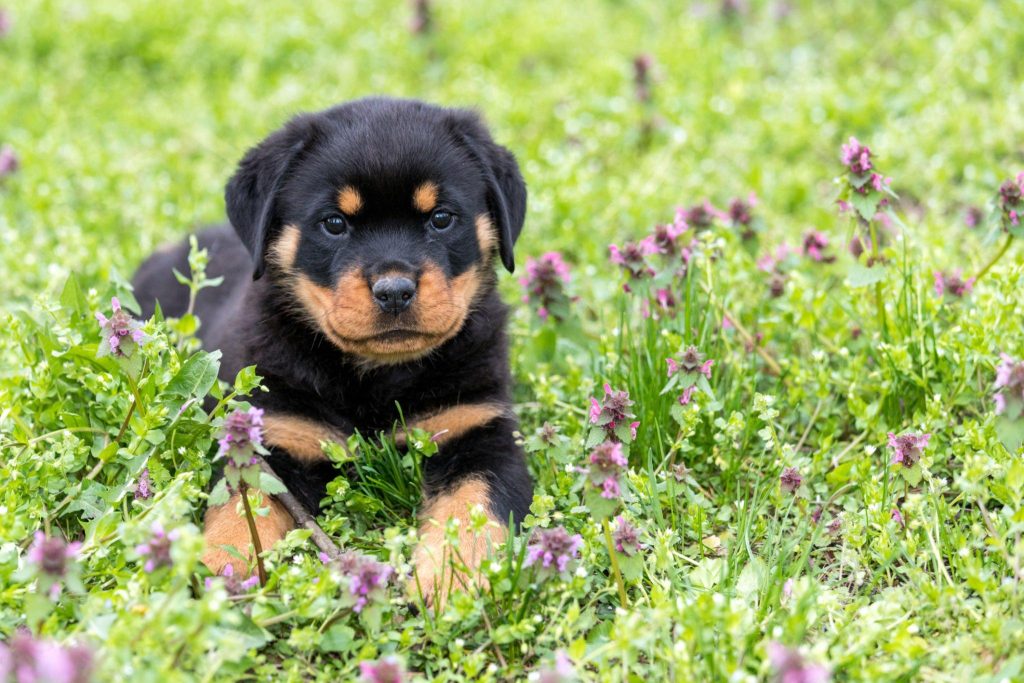
Rottweiler puppies are little bundles of energy that require frequent meals to support their rapid growth. Typically, puppies aged 6 to 12 weeks should be fed three to four times a day. The focus should be on protein-rich foods to aid in muscle development and healthy fats for energy.
How Much Should an Adult Rottweiler Eat a Day?
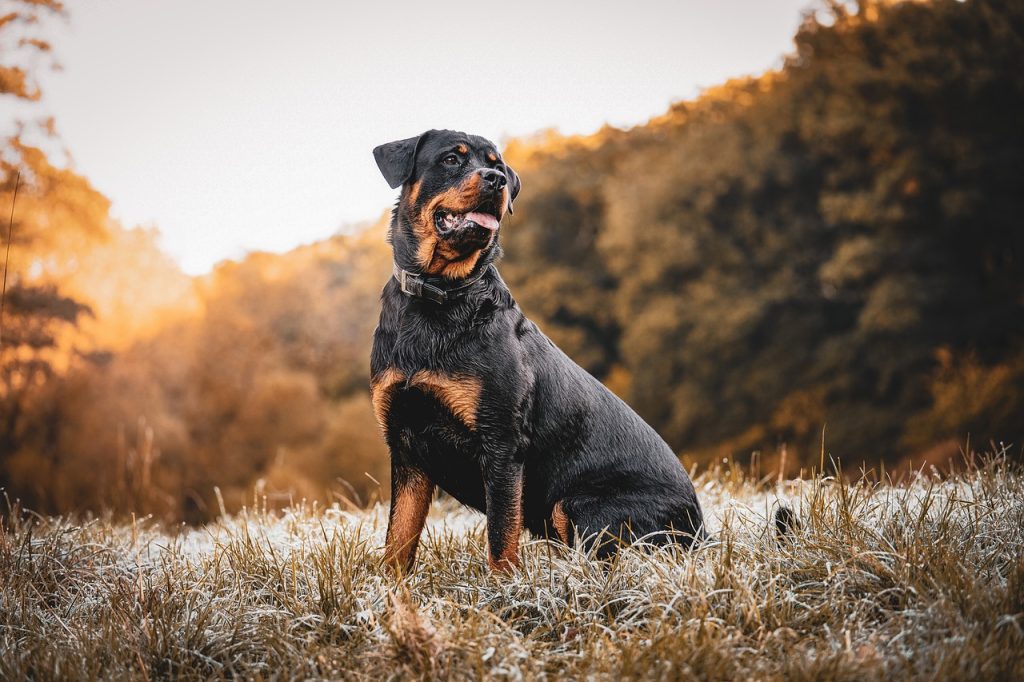
As your Rottweiler moves past the 1-year mark, it’s time to consider transitioning to adult dog food. Start by gradually mixing adult food into their existing puppy diet over a week or two to help them adjust. This shift in diet coincides with a change in their feeding schedule, generally moving from multiple meals to two meals a day.
Recommended Nutrient Ratios
For adult Rottweilers, look for foods that are rich in high-quality protein but lower in fat content than puppy food. The protein content should be around 22-26%, and fat content around 12-16%. Also, consider incorporating dietary fiber to help with digestion.
Navigating the dietary needs of your Rottweiler at different life stages can be a challenge, but it’s one that comes with fantastic rewards—a healthy, happy, and energetic companion. Consult your vet for personalized advice tailored to your dog’s specific needs.
How to Measure Portion Sizes?
Determining the right portion sizes for your Rottweiler doesn’t have to be a guessing game. With a little knowledge and guidance, you can ensure your furry friend is eating just the right amount for optimal health. Let’s break it down:
Use of Measuring Cups
If you’re feeding your Rottweiler commercial dog food, the bag usually comes with feeding guidelines based on weight. Don’t just eyeball it—using measuring cups can provide a more accurate portion size, ensuring you don’t underfeed or overfeed your pet.
Consult Your Vet
Every Rottweiler is unique, and what works for one may not work for another. It’s always a good idea to consult your veterinarian for a personalized feeding plan. They can factor in your dog’s age, weight, activity level, and any special health considerations.
Caloric Needs
Understanding your Rottweiler’s daily caloric needs is another essential step in portion control. Active adults may require around 2,200 to 2,600 calories a day, while less active or senior dogs might need fewer calories. Use this as a baseline to adjust portions as needed.
Measuring portion sizes accurately can make a significant difference in your Rottweiler’s health and well-being. Accurate portions can help prevent obesity, malnourishment, and associated health problems, setting the stage for a happier and more active life for your dog.
Recommended Foods for Rottweilers
Choosing the right food for your Rottweiler can make a world of difference in their health and happiness. With the myriad of options available, it’s crucial to select a diet that meets the unique needs of your Rottweiler, whether they’re a puppy or a full-grown adult.
For Rottweiler Puppies
High-Quality Commercial Foods: Opt for puppy-specific commercial foods that are rich in protein and healthy fats. Brands that feature meat as the first ingredient and are free from fillers and artificial additives are generally the best choice.
Nutrient-Rich Homemade Meals
If you prefer a homemade route, focus on including high-quality protein sources like chicken, beef, or fish, along with vegetables and whole grains. Always consult your vet for a balanced homemade meal plan.
Nutritional Supplements
Some puppies might require calcium and phosphorus supplements to support their rapid growth, but it’s essential to consult your vet before adding any supplements to their diet.
For Adult Rottweilers
Premium Commercial Foods: Look for adult dog food brands that list meat as the first ingredient and contain a balanced mix of protein, fats, and fibers. The protein content should be around 22-26%, and fat around 12-16%.
Raw Food Diets
Some Rottweiler owners swear by a raw food diet, which includes raw meat, vegetables, and bones. However, this diet requires careful planning and consultation with a vet to ensure it meets all of your dog’s nutritional needs.
Nutrient-Enhanced Homemade Meals
Like puppies, adult Rottweilers can also benefit from homemade meals. Be sure to include a balanced combination of protein, vegetables, and grains. Always consult your vet for personalized meal plans.
Whether you’re raising a Rottweiler puppy or caring for an adult, choosing the right food is essential for their well-being. Always consult your veterinarian to tailor the diet to your dog’s individual needs.
Foods to Avoid
When it comes to feeding your Rottweiler, knowing what NOT to feed them is just as important as knowing what they should eat. While Rottweilers have hearty appetites, there are certain foods that could be harmful—or even fatal—to this robust breed.
Dangerous Foods for Dogs
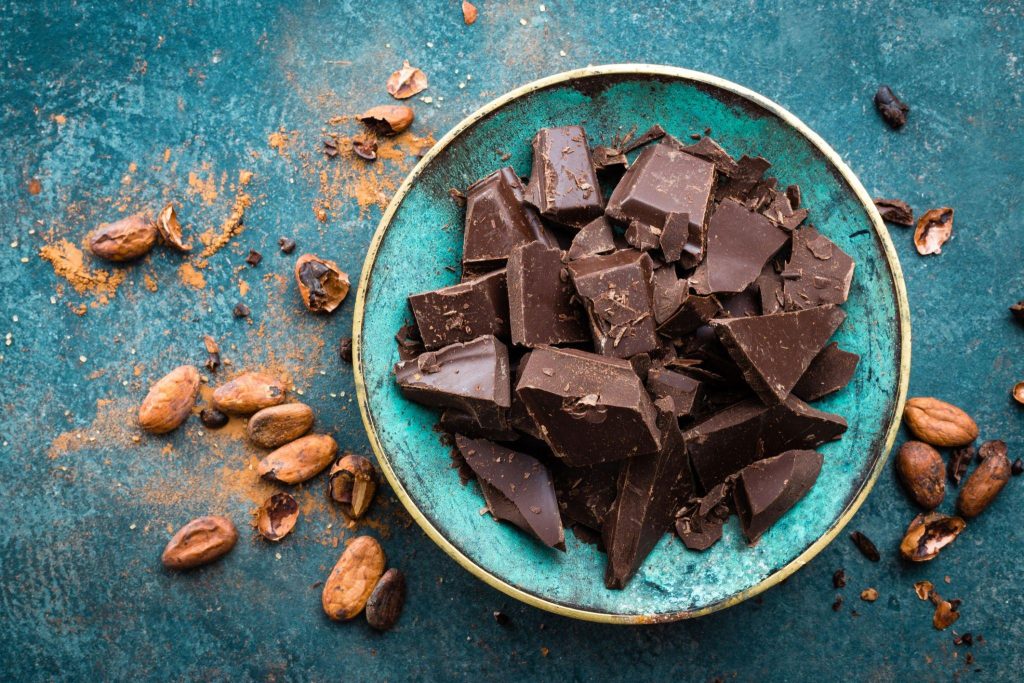
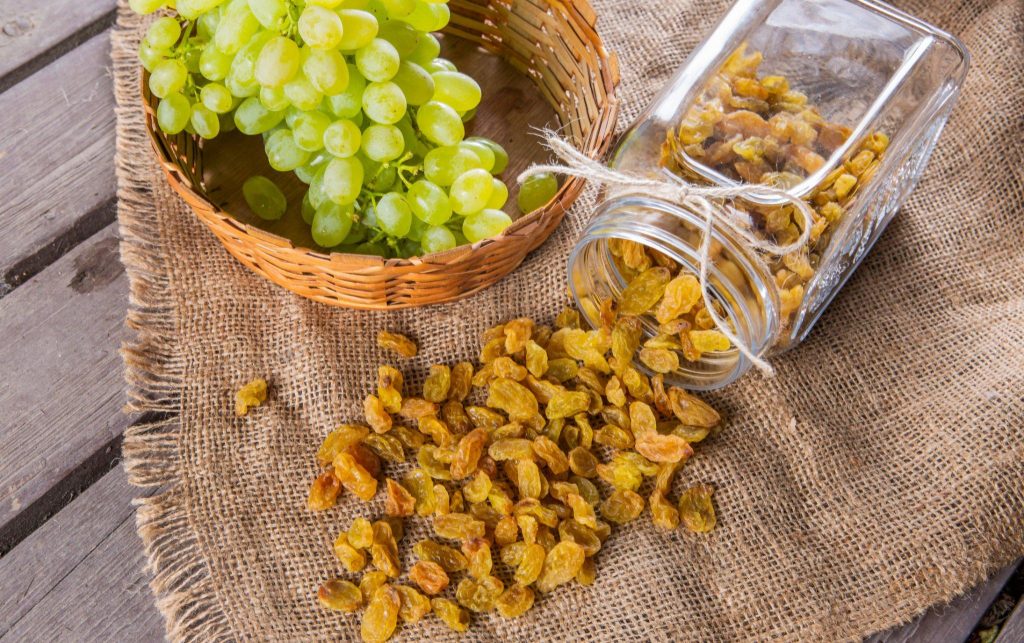
Certain foods that are safe for human consumption can be toxic to dogs. Some of the most dangerous include chocolate, grapes, raisins, onions, and garlic. These should be strictly avoided, as they can cause severe health issues ranging from gastrointestinal distress to life-threatening conditions.
Foods that Cause Allergies
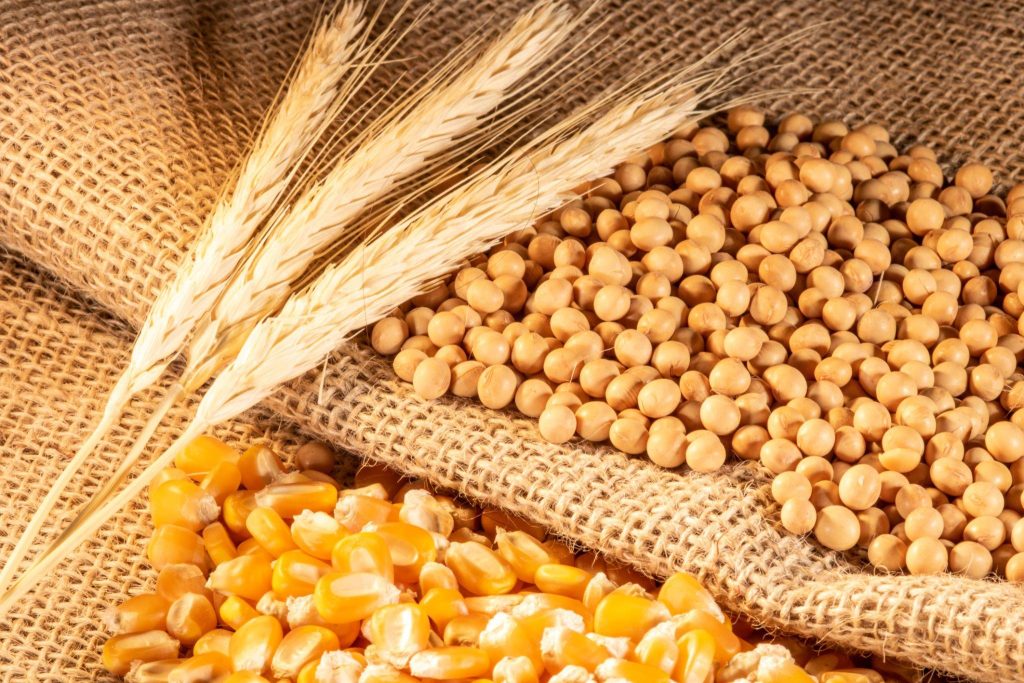
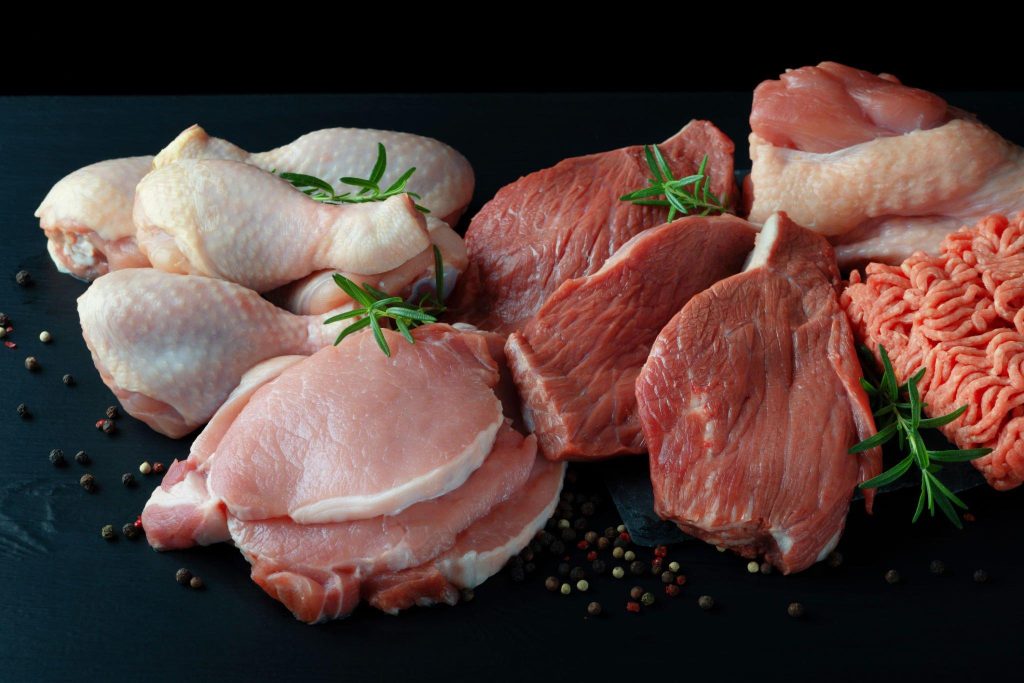
Rottweilers are prone to certain allergies, so it’s crucial to keep an eye out for adverse reactions. Common culprits include corn, soy, wheat, and certain proteins like beef or chicken. If you notice symptoms like itching or digestive issues, consult your vet for an allergy test and tailored diet plan.
High-Fat Foods
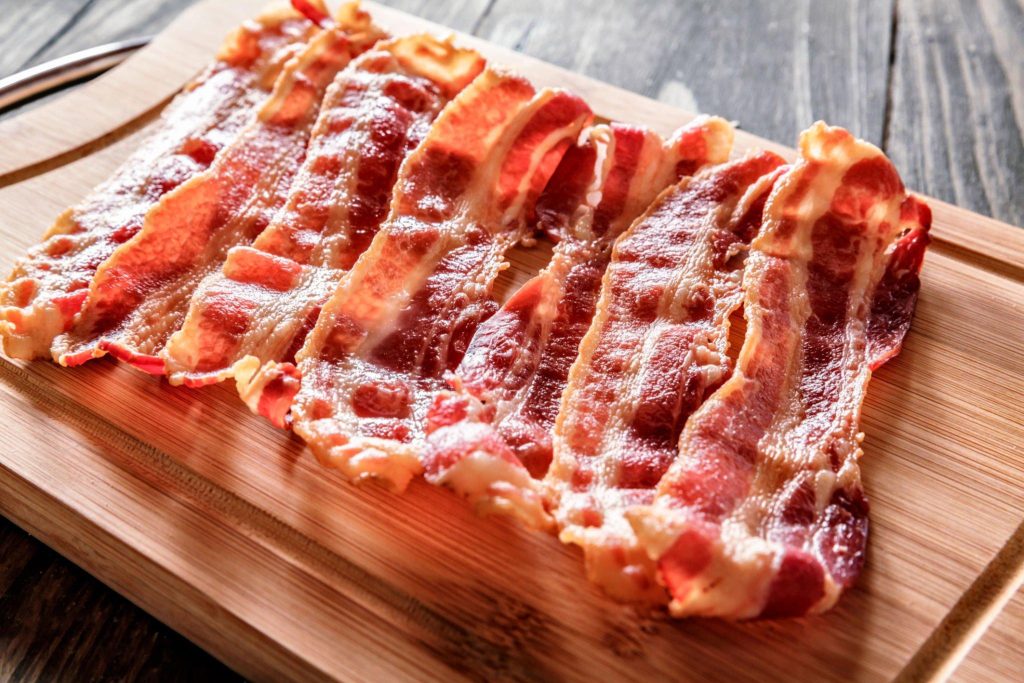
Foods high in fat, like bacon or fried items, can lead to obesity and pancreatitis in Rottweilers. Keep these indulgences to a minimum or avoid them altogether to maintain a healthy weight and digestive system for your dog.
Understanding what foods to avoid can help you keep your Rottweiler safe and healthy. Always exercise caution, read labels carefully, and when in doubt, consult your veterinarian for professional guidance on what’s best for your dog’s diet.
The Importance of Exercise
We’ve talked a lot about food, but diet is just one piece of the puzzle when it comes to your Rottweiler’s overall health. Exercise plays a pivotal role, not just in keeping your dog physically fit, but also in determining how much they should eat.
Role of Exercise in a Rottweiler’s Diet
A well-exercised Rottweiler is likely to have a faster metabolism, which means they’ll require more calories to maintain their energy levels. Conversely, a sedentary lifestyle can lead to weight gain, requiring adjustments to portion sizes and caloric intake.
Recommended Types of Exercise
Rottweilers love to be active and engaged. Activities like walking, running, swimming, and agility training are excellent ways to keep them physically and mentally stimulated. Aim for at least 30 to 60 minutes of exercise per day to keep your Rottweiler in top shape.
Balance of Diet and Exercise
Always remember that diet and exercise go hand-in-hand. A well-balanced diet fuels your Rottweiler’s active lifestyle, while regular exercise helps burn off excess calories and keeps the digestive system running smoothly.
Incorporating regular exercise into your Rottweiler’s routine is crucial for their well-being. It not only helps regulate their weight but also contributes to a happier, more fulfilled life. So leash up and get moving—it’s time for both you and your Rottweiler to enjoy the great outdoors!
Frequently Asked Questions
Navigating the world of Rottweiler nutrition can be a maze of conflicting information, leaving many owners with unanswered questions. In this FAQ section, we aim to address some of the most common queries that Rottweiler parents often have.
1. Can I Feed My Rottweiler Human Food?
While some human foods are safe for dogs, it’s crucial to know which ones are acceptable and which are not. Foods like carrots, sweet potatoes, and plain, cooked meats can be good in moderation. Always avoid toxic foods like chocolate and grapes.
2. How Many Times a Day Should I Feed My Rottweiler?
For puppies aged 6 to 12 weeks, three to four meals a day is generally recommended. Adult Rottweilers usually do well with two meals a day. Consult your vet for personalized advice.
3. Can Overfeeding Lead to Health Problems?
Absolutely. Overfeeding can result in obesity, which comes with a host of other health issues like joint problems and diabetes. Always stick to recommended portion sizes and adjust based on activity level and age.
4. Do Rottweilers Need a Grain-Free Diet?
Grain-free diets are popular but not always necessary. Some Rottweilers may have grain allergies, but many do fine with grains like rice or oats in their diet. Always consult your vet to determine what’s best for your dog.
5. Should I Add Supplements to My Rottweiler’s Diet?
Unless recommended by a vet, generally, it’s not necessary to add supplements if you’re feeding your Rottweiler a well-balanced, high-quality commercial dog food.
6. Is Wet Food Better Than Dry Food?
Both have pros and cons. Wet food can be more palatable and easier on the teeth, but dry food is convenient and helps with dental hygiene. A mix of both is often a good approach.
This FAQ section aims to clear up common questions and misconceptions, making it easier for you to provide the best care for your Rottweiler. However, for personalized guidance, always consult your veterinarian.
Conclusion
Feeding your Rottweiler appropriately is more than just a daily routine—it’s a commitment to their long-term health and well-being. Whether you’re nurturing a playful puppy or caring for a majestic adult, understanding the intricacies of their diet can set the foundation for a happier, healthier life.
From portion control and exercise to selecting the right foods and avoiding the wrong ones, there’s a lot to consider. Always remember that each Rottweiler is unique, and what works for one may not necessarily work for another. Consult your veterinarian for personalized dietary plans and advice tailored to your pet’s specific needs.
Thank you for joining us on this comprehensive guide to understanding how much a Rottweiler should eat a day. We hope it serves as a valuable resource for Rottweiler owners striving to provide the best care for their beloved companions. Here’s to many happy and healthy years ahead for you and your Rottweiler!
